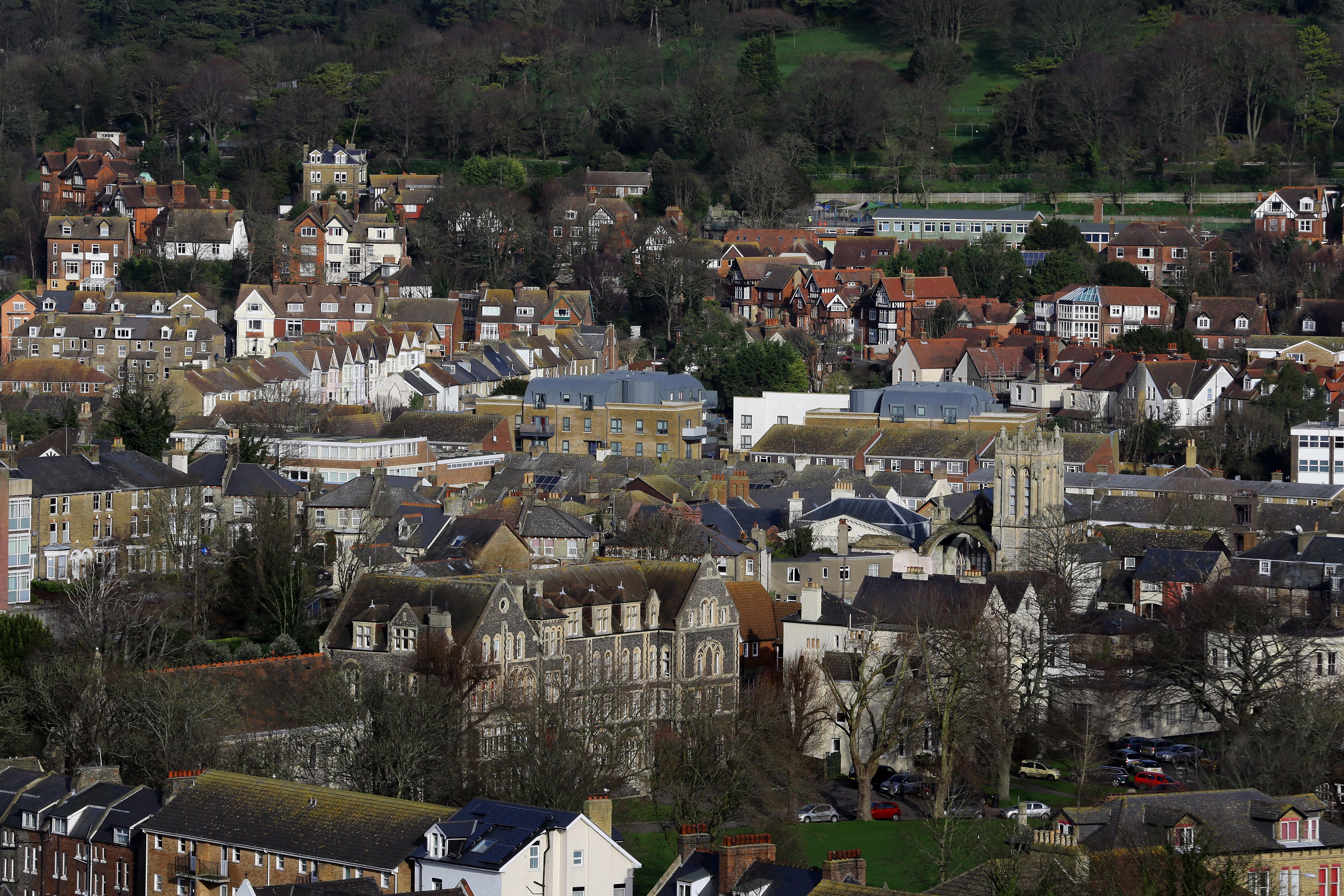Average UK house price fell by 0.6% in January
Annual house price growth slowed to 1.1%, from 2.8% in December, Nationwide Building Society said.

Your support helps us to tell the story
From reproductive rights to climate change to Big Tech, The Independent is on the ground when the story is developing. Whether it's investigating the financials of Elon Musk's pro-Trump PAC or producing our latest documentary, 'The A Word', which shines a light on the American women fighting for reproductive rights, we know how important it is to parse out the facts from the messaging.
At such a critical moment in US history, we need reporters on the ground. Your donation allows us to keep sending journalists to speak to both sides of the story.
The Independent is trusted by Americans across the entire political spectrum. And unlike many other quality news outlets, we choose not to lock Americans out of our reporting and analysis with paywalls. We believe quality journalism should be available to everyone, paid for by those who can afford it.
Your support makes all the difference.The average UK house price fell by 0.6% in January, according to an index.
Annual house price growth slowed to 1.1%, from 2.8% in December, and the typical property value is now 3.2% lower than its August peak, Nationwide Building Society said.
The average UK house price in January 2023 was £258,297.
The annual growth rate of 1.1% is the lowest since the early months of the coronavirus pandemic, in June 2020, when house prices fell by 0.1% annually.
House prices stalled in September last year, with 0.0% change and this was followed by monthly falls of 1.0% in October, 1.2% in November and 0.3% in December.
The mortgage rates being offered by lenders jumped following the mini-budget and borrowing costs have also been increasing as the Bank of England base rate has risen.
Robert Gardner, Nationwide’s chief economist, said: “There are some encouraging signs that mortgage rates are normalising, but it is too early to tell whether activity in the housing market has started to recover.
“The fall in house purchase approvals in December reported by the Bank of England largely reflects the sharp decline in mortgage applications following the mini-budget.
“It will be hard for the market to regain much momentum in the near term as economic headwinds are set to remain strong, with real earnings likely to fall further and the labour market widely projected to weaken as the economy shrinks.”
He added: “Should recent reductions in mortgage rates continue, this should help improve the affordability position for potential buyers, albeit modestly, as will solid rates of income growth, especially if combined with weak or negative house price growth.
“Nevertheless, the overall affordability situation looks set to remain challenging in the near term.”
Jeremy Leaf, a north London estate agent, said: “The fizz has certainly left the market, leaving behind more serious needs-driven as opposed to discretionary buyers, coming to terms with more stable mortgage rates and greater balance between supply and demand.
“Looking forward, the outlook for house prices remains fairly steady with no expectation of any dramatic change.”
Gabriella Dickens, a senior UK economist at Pantheon Macroeconomics, said: “Nationwide’s data show that house prices are continuing to buckle under the pressure of elevated mortgage rates, squeezed real incomes and weak consumers’ confidence.”
Phil Gamblin, founder of Cardiff-based mortgage broker Oak Financial, said: “We’ve seen a large number of inquiries from home-buyers and re-mortgagers alike, suggesting that the turmoil felt at the end of 2022 is dying down and confidence is returning to the market.”
Tom Bill, head of UK residential research at Knight Frank, said: “The UK housing market is headed for an annual fall in prices as mortgage rates remain notably higher than 12 months ago.
“To anticipate how steep, you need to look beyond the short-term distortion of the mini-budget.
“For example, buyers and sellers switched off early for Christmas but activity bounced back in January. The resilience of prices and sales volumes will be put to the test in the spring.
He added: “We expect prices to decline 10% over the next two years as budgets get recalculated.”
Jason Tebb, chief executive of property search website OnTheMarket.com, said: “With buyers having less buying power, making sure properties are priced well by taking advice from an experienced local agent who knows the local area inside and out will be more important than ever this year.”
Iain McKenzie, chief executive of the Guild of Property Professionals, said: “House prices saw another modest fall in January, but a few signs mean there’s hope on the horizon.
“The affordability factor is the biggest concern for buyers right now, particularly those just starting on the property ladder. Mortgage rates went through the roof last year and shifted the goal posts for those saving for a deposit. It appears as though we are seeing some stability returning to the market.”